16 results in Cambridge Studies in Medieval Life and Thought: Third Series
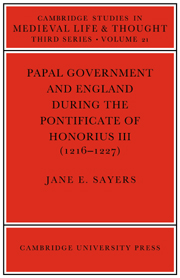
Papal Government and England during the Pontificate of Honorius III (1216–1227)
-
- Published online:
- 05 March 2012
- Print publication:
- 22 November 1984
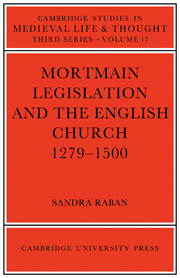
Mortmain Legislation and the English Church 1279–1500
-
- Published online:
- 05 March 2012
- Print publication:
- 19 August 1982
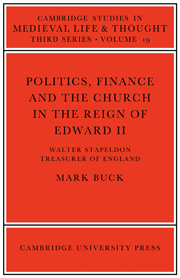
Politics, Finance and the Church in the Reign of Edward II
-
- Published online:
- 05 November 2011
- Print publication:
- 12 May 1983
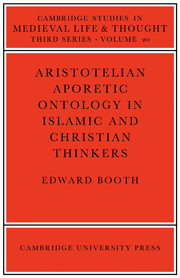
Aristotelian Aporetic Ontology in Islamic and Christian Thinkers
-
- Published online:
- 05 November 2011
- Print publication:
- 01 December 1983
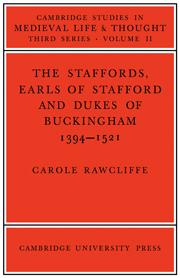
The Staffords, Earls of Stafford and Dukes of Buckingham
- 1394–1521
-
- Published online:
- 07 October 2011
- Print publication:
- 12 January 1978
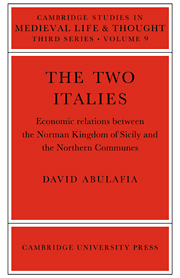
The Two Italies
- Economic Relations Between the Norman Kingdom of Sicily and the Northern Communes
-
- Published online:
- 02 February 2010
- Print publication:
- 10 March 1977
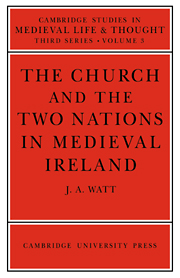
The Church and the Two Nations in Medieval Ireland
-
- Published online:
- 28 October 2009
- Print publication:
- 02 November 1970
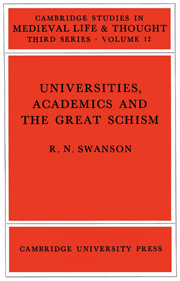
Universities, Academics and the Great Schism
-
- Published online:
- 27 October 2009
- Print publication:
- 03 May 1979
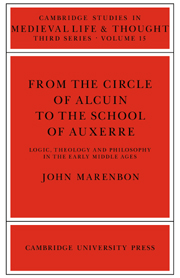
From the Circle of Alcuin to the School of Auxerre
- Logic, Theology and Philosophy in the Early Middle Ages
-
- Published online:
- 24 October 2009
- Print publication:
- 14 May 1981
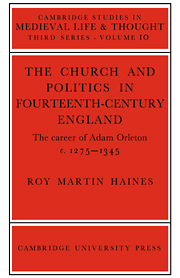
Church/Politcs:Adam Orleton
-
- Published online:
- 24 October 2009
- Print publication:
- 30 March 1978
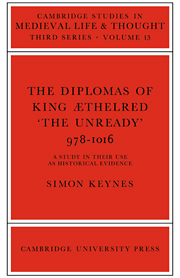
The Diplomas of King Aethlred 'the Unready' 978–1016
-
- Published online:
- 19 October 2009
- Print publication:
- 31 July 1980
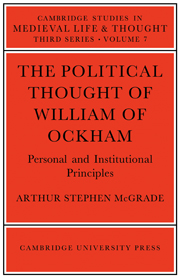
The Political Thought of William Ockham
-
- Published online:
- 16 October 2009
- Print publication:
- 13 June 1974
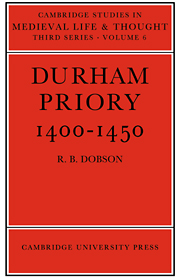
Durham Priory 1400–1450
-
- Published online:
- 14 October 2009
- Print publication:
- 26 July 1973
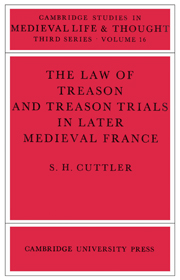
The Law of Treason and Treason Trials in Later Medieval France
-
- Published online:
- 13 October 2009
- Print publication:
- 21 January 1982
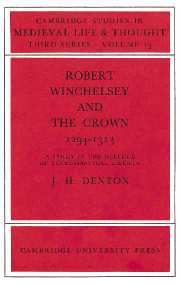
Robert Winchelsey and the Crown 1294–1313
- A Study in the Defence of Ecclesiastical Liberty
-
- Published online:
- 07 October 2009
- Print publication:
- 27 November 1980
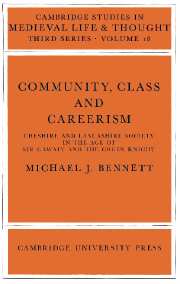
Community, Class and Careers
-
- Published online:
- 22 September 2009
- Print publication:
- 03 February 1983

